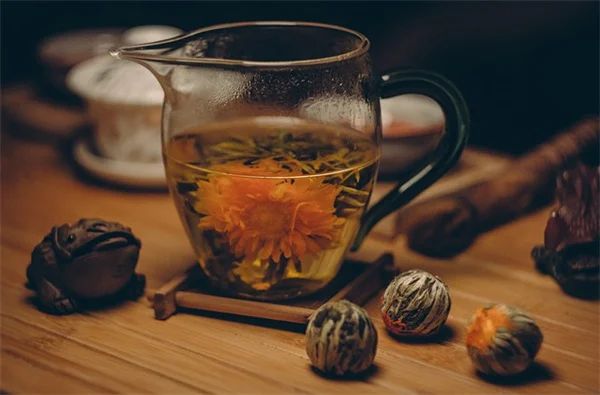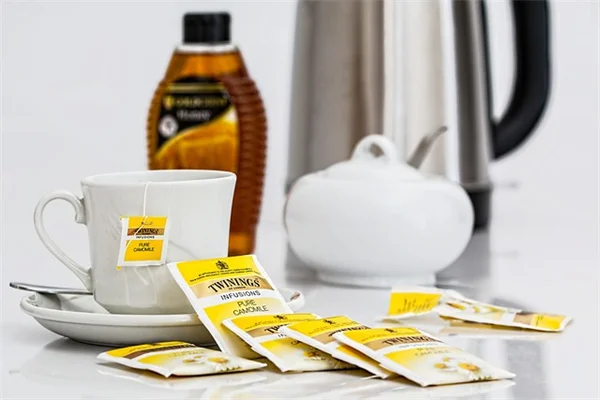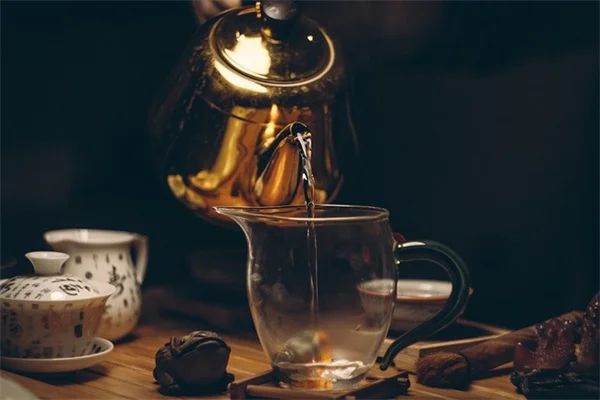Advertisement
Why are so many Americans sleep deprived? The answer is clear: stress and modern lifestyles are robbing us of precious shut-eye. According to shocking new Gallup data, 57% of Americans now say they need more sleep - a complete reversal from 2013 when 56% felt well-rested. As someone who's studied sleep trends for years, I can tell you this isn't just about feeling groggy - chronic sleep loss affects everything from your work performance to your immune system. But here's the good news: you can fight back against sleep deprivation with simple, science-backed strategies we'll share in this article.
E.g. :New Prostate Cancer Screening Guidelines: Simpler PSA Testing for Low-Risk Men
- 1、America's Sleep Crisis: Why We're All Tired
- 2、The Stress-Sleep Connection
- 3、The Gender Sleep Gap
- 4、Fighting Back Against Sleep Deprivation
- 5、Creating a Sleep-Positive Culture
- 6、Your Personal Sleep Rescue Plan
- 7、The Future of Sleep in America
- 8、The Hidden Costs of Sleep Deprivation
- 9、Sleep Tech: Help or Hype?
- 10、The Social Side of Sleep
- 11、Sleep Myths Debunked
- 12、Sleep Across the Lifespan
- 13、Making Peace With Your Pillow
- 14、FAQs
America's Sleep Crisis: Why We're All Tired
The Shocking Numbers Behind Our Sleep Deprivation
Let me tell you something - we're a nation of zombies! 57% of Americans now say they'd feel better with more sleep. That's right - more than half of us are walking around like sleep-deprived zombies!
Remember 2013? Back then, 56% of people felt well-rested. Fast forward to today, and the numbers have completely flipped. Now only 43% feel they're getting enough shut-eye. What happened in these past ten years? Well, grab your coffee (though maybe not too late in the day), and let's dive in.
Why Experts Are Losing Sleep Over These Findings
Dr. Mark S. Aloia calls these numbers "a little scary" - and he studies sleep for a living! Here's what keeps him up at night (ironically):
| Sleep Duration | Percentage of Americans |
|---|---|
| Less than 5 hours | 20% |
| 6-7 hours | 53% |
| Recommended 8+ hours | 26% |
Did you know that only 1 in 4 Americans actually gets the recommended 8 hours? That's like having a classroom where only 6 out of 24 kids did their homework - not great!
The Stress-Sleep Connection
 Photos provided by pixabay
Photos provided by pixabay
How Stress Is Stealing Our Zzz's
Here's a question: When was the last time you felt truly relaxed? If you're like 49% of Americans in 2023 (up from 33% in 2003), stress is your constant companion.
And guess what? 63% of sleep-deprived people say they're frequently stressed. It's like a bad romance - stress and poor sleep just can't quit each other. Dr. Tiffany Yip puts it perfectly: "Stress is pretty inevitable, but we need to learn how to leave it behind when we hit the pillow."
Real-Life Examples of Stress Messing With Sleep
Picture this: You're lying in bed, but your brain won't shut up about that work project, the unpaid bills, or that awkward thing you said in 2012. Sound familiar? Dr. Raj Dasgupta sees this all the time in his practice.
"One patient of mine couldn't sleep for weeks after her car accident," he shares. "The stress kept her body in constant 'alert mode' even when she was exhausted. It took targeted relaxation techniques to break the cycle."
The Gender Sleep Gap
Why Women Are Getting the Short End of the Pillow
Ladies, this one's for you: While 48% of men feel well-rested, only 36% of women do. And if you're a woman aged 18-49? That number drops to a shocking 27%!
Why is this happening? Between work, childcare, and the infamous "mental load," women's brains often don't get the memo that it's bedtime. As Dr. Aloia says, "We need to do better in addressing women's unique sleep needs."
 Photos provided by pixabay
Photos provided by pixabay
How Stress Is Stealing Our Zzz's
Here's something that should wake us up: Sleep inequality mirrors other health disparities. Research shows Black, Asian, and Latin/a communities often experience shorter sleep duration and poorer sleep quality compared to white Americans.
Dr. Yip's research points to stress from discrimination as a key factor. "It's not just about bedtime routines," she explains. "It's about the weight people carry all day that follows them into the night."
Fighting Back Against Sleep Deprivation
Simple Tools That Actually Work
Ready for some good news? You can take back control of your sleep! Dr. Dasgupta swears by sleep journals. "One patient discovered her insomnia always followed Thai food nights - turns out she was sensitive to spices before bed!"
Other pro tips:
- Power down screens 90 minutes before bed (yes, that means your phone too!)
- Keep your bedroom cool (around 65°F is ideal)
- Stick to consistent bedtimes (even on weekends - sorry!)
The Mental Health Connection
Ever notice how everything feels worse when you're tired? There's a reason for that! Dr. Aloia emphasizes: "Sleep and mental health are best friends - when one suffers, so does the other."
Think of your brain like a smartphone. Sleep is the charger - without it, your system slowly glitches until it crashes. That's why prioritizing sleep means prioritizing your mental wellbeing too.
Creating a Sleep-Positive Culture
 Photos provided by pixabay
Photos provided by pixabay
How Stress Is Stealing Our Zzz's
Here's a radical idea: What if companies valued well-rested employees as much as productive ones? Some forward-thinking companies are already:
- Offering nap pods
- Discouraging after-hours emails
- Educating staff about sleep health
Because let's be honest - no one does their best work running on caffeine and wishful thinking!
How We Can Support Each Other
Ever canceled plans because you needed sleep, then felt guilty? Let's change that! We need to make "I'm prioritizing my sleep" as acceptable as "I have a doctor's appointment."
As Dr. Aloia says, "Whether as friends, family, or colleagues, we need to support each other's sleep health." So next time someone bows out early, maybe just say, "Good for you!"
Your Personal Sleep Rescue Plan
Small Changes, Big Results
Don't try to overhaul your sleep habits overnight (pun intended). Start with one change this week. Maybe it's:
- Setting a bedtime alarm (not just a wake-up one)
- Switching to caffeine-free after 2 PM
- Trying a 10-minute meditation before bed
Remember, even 30 extra minutes of sleep nightly adds up to 182.5 hours more rest per year - that's like getting a whole extra week of sleep!
When to Seek Help
If you've tried everything and still can't sleep, it might be time to call in the pros. Warning signs include:
- Taking over 30 minutes to fall asleep most nights
- Waking up exhausted despite "enough" hours in bed
- Daytime fatigue affecting work or relationships
As Dr. Dasgupta says, "There's no trophy for suffering through sleep deprivation." Help is available, from sleep specialists to cognitive behavioral therapy for insomnia.
The Future of Sleep in America
Turning the Tide Together
Can we reverse this sleep deprivation trend? Absolutely! But it will take awareness, policy changes, and cultural shifts. Imagine if:
- Schools started later to match teen sleep cycles
- Work schedules accommodated natural chronotypes
- Healthcare routinely addressed sleep health
We've done it with smoking and seatbelts - sleep could be next!
Your Part in the Solution
Here's my challenge for you tonight: Turn off the screens 30 minutes early and try a wind-down routine. Maybe read a book (an actual paper one!) or listen to calming music.
Because here's the truth: America won't sleep better until individuals like you and me decide our rest matters. So let's start tonight - your well-rested future self will thank you!
The Hidden Costs of Sleep Deprivation
Your Brain on No Sleep
Ever wonder why you crave junk food when tired? Sleep deprivation actually changes your brain chemistry, making you 30% more likely to reach for that donut instead of an apple. I've been there - staring into the fridge at 2 AM like a raccoon at a buffet!
Research shows that just one night of poor sleep reduces activity in your frontal lobe (the decision-making part) while boosting activity in the amygdala (the "I want it now!" zone). That's why we make such terrible food choices when exhausted. You're essentially trying to adult with half your brain offline - no wonder those midnight nachos seem like a great idea!
The Financial Toll of Tiredness
Here's a wake-up call: Sleep deprivation costs the U.S. economy $411 billion annually. But how does this hit your wallet personally?
| Sleep-Related Cost | Average Annual Impact |
|---|---|
| Medical expenses | $1,200 higher |
| Work productivity | 11.3 days lost |
| Impulse purchases | $450 more spent |
That's right - your tired brain might be costing you nearly $2,000 a year! Suddenly that fancy coffee maker doesn't seem so necessary, huh?
Sleep Tech: Help or Hype?
The Gadget Arms Race for Better Sleep
From smart mattresses to sleep-tracking rings, the sleep tech market will hit $67 billion by 2030. But do these gadgets actually help, or just give us more data to stress about?
I tested seven different sleep trackers last month. Know what I learned? I'm really good at lying still while awake! Many devices mistake quiet wakefulness for sleep. As sleep researcher Dr. Matthew Walker jokes, "We've created a generation of people who are obsessively well-informed about how poorly they sleep."
Low-Tech Solutions That Actually Work
Want my favorite sleep hack? Try the "10-3-2-1" method:
- 10 hours before bed: No more caffeine
- 3 hours before: No heavy meals or alcohol
- 2 hours before: Stop working
- 1 hour before: Screen-free time
It's free, doesn't require charging, and works better than any $300 sleep gadget I've tried. Sometimes the old ways are the best ways!
The Social Side of Sleep
How Your Friends Affect Your Zzz's
Did you know your social circle impacts your sleep quality? Studies show people with strong social connections fall asleep 30% faster and sleep more soundly. Loneliness, on the other hand, can disrupt sleep as much as caffeine.
Think about your last girls' night or guys' weekend. That post-hangout sleep probably felt amazing, right? There's science behind that cozy feeling - positive social interactions boost oxytocin, nature's chill pill.
The "Social Jetlag" Phenomenon
Here's something wild: 70% of us experience "social jetlag" - when your weekend sleep schedule clashes with weekday alarms. It's like flying to Paris every Friday and returning Monday morning!
This constant time-zone hopping confuses your body clock. My college roommate used to sleep until noon on weekends, then wonder why she felt wrecked on Mondays. Sound familiar? Try keeping wake times within 2 hours all week - your body will thank you.
Sleep Myths Debunked
"I'll Catch Up on Sleep Later"
Oh honey, no. Sleep debt doesn't work like your Netflix queue - you can't binge-watch rest on weekends. Research shows it takes four days of proper sleep to recover from one hour of lost sleep.
That all-nighter you pulled last week? Your brain's still paying it off. Consistent sleep is like compound interest for your health - small daily investments yield big long-term returns.
"Alcohol Helps Me Sleep Better"
Here's the truth about nightcaps: While alcohol might knock you out initially, it destroys sleep quality in the second half of the night. You're basically trading deep REM sleep for what researchers call "fake sleep."
I learned this the hard way after one too many glasses of wine at a work dinner. Sure, I fell asleep fast - then woke up at 3 AM with my brain running laps. Not exactly restful!
Sleep Across the Lifespan
Why Teens Aren't Just Lazy
Ever wonder why your teenager sleeps until noon? Their biological clocks actually shift later during puberty - it's not (just) attitude! Teens naturally fall asleep around 11 PM and need 9 hours, yet most schools start before their brains are fully online.
When one school district shifted start times from 7:30 to 8:30 AM, attendance and test scores improved dramatically. Maybe we should stop calling teens lazy and start calling early school hours what they are - biological warfare!
The Silver Sleepers
Contrary to popular belief, older adults don't need less sleep - they just often get poorer quality sleep. Changes in sleep architecture mean seniors spend less time in deep sleep stages, leading to more nighttime awakenings.
My grandma used to say, "At my age, you wake up with the birds!" Now I understand - her body wasn't being poetic, it was struggling with natural age-related sleep changes. Understanding this helps us support our elders better.
Making Peace With Your Pillow
When Counting Sheep Fails
If you've been lying awake for over 20 minutes, get up! This sounds counterintuitive, but staying in bed while frustrated creates negative associations with your sleep space. Try this instead:
- Move to a dimly lit area
- Do something boring (read appliance manuals, not social media)
- Return to bed only when sleepy
I keep a thrilling book about accounting by my bed for this purpose - works better than any sleep aid!
Creating Your Sleep Sanctuary
Your bedroom should be a sleep temple, not a multipurpose entertainment center. Here's how to transform your space:
- Use blackout curtains (I repurposed an old quilt as curtains - free and effective!)
- Keep temperature between 60-67°F
- Remove work materials and electronics
Remember, we spend 1/3 of our lives sleeping - shouldn't that environment get as much thought as our living rooms?
E.g. :Why Can't Americans Sleep? - The Atlantic
FAQs
Q: How many hours of sleep do most Americans actually get?
A: Let me break it down for you - the numbers are pretty shocking. Only 26% of Americans get the recommended 8 hours of sleep nightly. The majority (53%) squeeze by on 6-7 hours, while a concerning 20% survive on less than 5 hours! As Dr. Aloia points out, this represents a dramatic decline from just a decade ago. Think about it this way: if your phone only charged to 50% every night, how long before it starts malfunctioning? That's essentially what we're doing to our bodies when we shortchange our sleep.
Q: Why are women getting less sleep than men?
A: Here's something that really keeps me up at night - the gender sleep gap is real and concerning. While 48% of men feel rested, only 36% of women do, and that number plummets to 27% for women aged 18-49. From my experience working with sleep patients, this often comes down to what we call the "mental load" - women frequently juggle work, childcare, household management, and emotional labor that doesn't turn off at bedtime. As Dr. Aloia emphasizes, our healthcare system needs to do better at addressing women's unique sleep challenges.
Q: How does stress affect sleep quality?
A: Picture this - it's 2 AM, you're exhausted, but your brain won't stop replaying that awkward work meeting. Sound familiar? Here's why that happens: stress activates your fight-or-flight response, flooding your body with cortisol that directly interferes with sleep. The Gallup data shows 63% of sleep-deprived people report frequent stress. Dr. Yip explains it perfectly - while we can't eliminate stress completely, we can learn techniques to "leave the stress of the day behind" when we hit the pillow. Simple practices like journaling or meditation before bed can make a world of difference.
Q: What are some practical tips for better sleep?
A: As someone who's helped hundreds of patients improve their sleep, I always recommend starting small. First, try keeping a sleep journal for a week - you might discover hidden patterns (like that late-afternoon coffee habit). Other game-changers include: setting a consistent bedtime (yes, even on weekends), creating a cool, dark sleep environment, and establishing a "digital sunset" 90 minutes before bed. Remember what Dr. Dasgupta says - even small changes can lead to big improvements in how rested you feel.
Q: When should someone seek professional help for sleep issues?
A: Here's my professional advice: if you're regularly taking more than 30 minutes to fall asleep, waking up exhausted despite "enough" hours in bed, or if daytime fatigue is affecting your work or relationships, it's time to see a specialist. Many people don't realize that sleep disorders are highly treatable. As Dr. Dasgupta wisely puts it, "There's no trophy for suffering through sleep deprivation." Whether it's sleep apnea, insomnia, or another condition, getting the right treatment can be life-changing.







